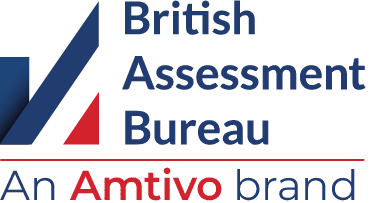Menopause can significantly impact women in the workplace, affecting well-being and overall job satisfaction. However, as awareness grows, organisations have an opportunity to create inclusive environments that support all employees.
In July 2025, the government proposed that Menopause Action Plans be introduced on a voluntary basis for employers starting in April 2026, with discussions ongoing about the potential future requirements for large employers in 2027. These proposals form part of the wider employment rights strategy aimed at inclusivity.
The focus is to encourage employers to discuss menopause openly, offer manager training, review policies, and create supportive environments. Employers may also pursue voluntary menopause-friendly accreditation and access expert support through schemes designed to promote inclusive practices.
Read on to hear about some of the ways business owners can support female employees who are affected by the symptoms of menopause.
What is Menopause?
Menopause typically affects women aged between 45 and 55, although it can happen earlier. It marks a major physiological transition driven by hormonal shifts. The associated symptoms affect different women in different ways and can include anxiety, sleep disruption, and musculoskeletal concerns. For some women, these effects may influence concentration and overall well-being. However, by recognising these potential challenges, employers can respond proactively.
While discussion of menopause at work is more common than in previous years, it remains under-addressed, so fostering open, informed conversation is a vital first step.
How Could Businesses Support Their Staff?
Around 72% of UK women of working age are employed, and nearly 6 million people are experiencing menopause. These professionals may be at the height of their careers, but as many as 25% have considered leaving their jobs due to menopause-related challenges.
For this reason, understanding and practical support can be essential for employee well-being, talent retention, and business performance.
It is also important for employers to understand that under the Equality Act 2010, some menopause-related symptoms may be treated as a disability if they meet the legal criteria. Employers must also consider their duties regarding discrimination, reasonable adjustments, and harassment.
1. Creating a supportive, inclusive workplace
A menopause-inclusive environment starts with education and awareness. Training for managers and colleagues can equip teams to provide sensitive, effective support, fostering an open and compassionate culture.
Many leading UK employers now have formal menopause policies in place and are encouraging open conversations.
Other considerations might include ensuring the workplace facilities are menopause-friendly in terms of temperatures and breakout spaces. If the workplace requires a uniform, employers could provide options made from breathable fabrics or allow adaptations for layering if necessary.
Employers may demonstrate their commitment through participation in voluntary programmes, such as the Wellbeing of Women Employer Membership Programme or other menopause-friendly initiatives.
2. Considering work-life balance
Menopause can coincide with other life pressures. Some women going through menopause may have additional responsibilities, such as caring for both children and ageing parents, which can add to their stress and workload.
Flexible working options – such as adjusted hours, hybrid work, or job sharing – are increasingly recognised as best practices. This flexibility can alleviate stress and help women to manage their symptoms more effectively, helping to maintain productivity and job satisfaction.
3. Providing access to support services
Beyond workplace adjustments, access to support services can be invaluable. Many employers now offer employee assistance programmes (EAPs), counselling, or signposting to external resources.
Some organisations work with health professionals to provide regular wellness check-ups or specialist menopause advice.
The Menopause Charity is a practical resources and support for both employers and employees.
4. Offering resources and information
Providing curated resources, such as articles, guides, and links to medical experts, could empower more employees to manage their symptoms better. This might include information on stress management and nutrition, and access to specialised health professionals.
Internal knowledge hubs or digital archives can make this information easily accessible.
These practical steps work most effectively when implemented as part of a comprehensive workplace health strategy. Organisations implementing a workplace health strategy may also benefit from the structure offered by relevant management system standards.
How ISO Standards Can Help Employers Provide Menopause Support
Menopause is a natural process that can significantly affect women’s physical, emotional, and mental health. Organisations that proactively offer support through reasonable workplace adjustments and resource access may help women navigate this transition.
ISO standards may assist businesses in developing consistent, structured workplace practices that include considerations for employee health and well-being, including those related to menopause.
ISO 45001 is an Occupational Health and Safety (OH&S) Management System standard. It provides a structured approach to developing policies for specific employee needs. Its systematic approach to identifying workplace hazards and implementing risk controls can be applied to support all employees’ health and safety requirements. Organisations may choose to consider menopause-related needs as part of their broader health and safety objectives within the scope of an OH&S management system.
For instance, the standard’s requirements could help organisations recognise and address workplace factors that may affect employees experiencing menopause, such as temperature control or workstation ergonomics.
This structured approach may support a more accommodating and responsive workplace environment for menopausal women, while also supporting productivity and compliance.
Get Started With ISO Certification
Start your journey to ISO certification with Amtivo, a UKAS-accredited certification body. Amtivo supports organisations throughout the ISO certification process, from initial application to recertification audits.
Request a free quote or contact our team today.
Further Information
The following resources provide further information on menopause and how to support female employees in the workplace.
Articles
ACAS – Managing the Menopause at Work
Menopause in the workplace – Equality and Human Rights Commission guidance for employers
Podcasts/Videos
Workplace menopause advice from lawyer Emma Hammond – The Dr Louise Newson Podcast
How to build a menopause-positive workplace and why it’s good for business – Wellbeing of Women
Free resources
Gov.UK – Menopause support in the workplace
Free Menopause in the Workplace Resources for Employers – Menopause Friendly UK


